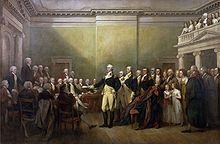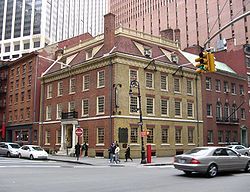“Punting the Pundits” is an Open Thread. It is a selection of editorials and opinions from around the news medium and the internet blogs. The intent is to provide a forum for your reactions and opinions, not just to the opinions presented, but to what ever you find important.
Thanks to ek hornbeck, click on the link and you can access all the past “Punting the Pundits”.
Bill Clinton: We need to save more lives – with less
We risk losing our momentum, unless we find new ways to fill gaps left by reductions in Aids funding caused by the economic crisis
On World Aids Day 10 years ago, as I was preparing to leave office, the world was only beginning to grasp the severity of the Aids crisis. Nearly 36 million men, women and children were living with the disease, but only about 200,000 were receiving the treatment they needed. Funding was nowhere near the levels needed to prevent the disease from reaching pandemic levels.
Over the last decade, we have seen dramatic progress in both treatment and funding. In 2008 alone, $15bn was invested to fight Aids in developing countries, up from $6bn just three years earlier, due in large part to the US Government’s PEPFAR (President’s Emergency Plan for Aids Relief) programme.
Josh Silver: FCC Chairman Announces Fake Net Neutrality Proposal
This morning, Federal Communications Commission Chairman Julius Genachowski announced that he will finally seek a vote on President Obama’s top tech issue, “Net Neutrality.” Except for one problem: according to the New York Times, it’s not even close to the real Net Neutrality that President Obama promised the American people.
The Times report, based on an advance copy of a speech the Chairman plans to give today, indicates that the proposed rule is riddled with loopholes, and falls far short of what’s necessary to prevent phone and cable companies from turning the Internet into cable TV: where they decide what moves fast, what moves slow, and whether they can price gouge you or not: a shiny jewel for companies like AT&T and Comcast who have met with the Chairman more than anyone else during the past month, and whose affection he seems to crave more than making good on President Obama’s promise.
Now that the FCC’s proposed rulemaking has been officially announced, it will be deliberated and modified for the next three weeks, leading to a final vote on December 21st.
Nicholas D. Kristof: Haiti, Nearly a Year Later
Ultimately what Haiti most needs isn’t so much aid, but trade. Aid accounts for half of Haiti’s economy, and remittances for another quarter – and that’s a path to nowhere.
The United States has approved trade preferences that have already created 6,000 jobs in the garment sector in Haiti, and several big South Korean companies are now planning to open their own factories, creating perhaps another 130,000 jobs.
“Sweatshops,” Americans may be thinking. “Jobs,” Haitians are thinking, and nothing would be more transformative for the country.
Let’s send in doctors to save people from cholera. Let’s send in aid workers to build sustainable sanitation and water systems to help people help themselves. Let’s help educate Haitian children and improve the port so that it can become an exporter. But, above all, let’s send in business investors to create jobs.
 Welcome to the Stars Hollow Health and Fitness weekly diary. It will publish on Saturday afternoon and be open for discussion about health related issues including diet, exercise, health and health care issues, as well as, tips on what you can do when there is a medical emergency. Also an opportunity to share and exchange your favorite healthy recipes.
Welcome to the Stars Hollow Health and Fitness weekly diary. It will publish on Saturday afternoon and be open for discussion about health related issues including diet, exercise, health and health care issues, as well as, tips on what you can do when there is a medical emergency. Also an opportunity to share and exchange your favorite healthy recipes. 






Recent Comments